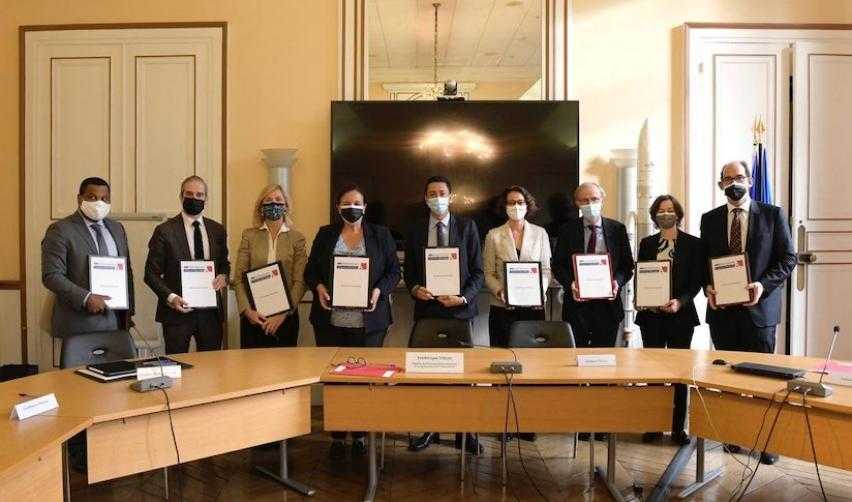Home>Strengthening Dialogue Between Economists, Policy-Makers, and Citizens

29.10.2021
Strengthening Dialogue Between Economists, Policy-Makers, and Citizens
On 1 October, Sciences Po signed a partnership agreement with the Centre for Economic Policy Research (CEPR), under the aegis of France’s Ministry of Higher Education, Research and Innovation. Read our interview with Beatrice Weder di Mauro, the centre’s president, and Philippe Martin, a professor within the Department of Economics at Sciences Po and the Centre’s vice-president.
What is the Centre for Economic Policy Research?
Beatrice Weder di Mauro: Today, the CEPR consists of a network of over 1,600 economists based all around the world but focusing on Europe. It has continually developed the objectives it set itself when it was founded nearly thirty years ago. The first of these is to organise discussions between economists, for the most part working in academia, in order to provide an opportunity for them to meet, share ideas, discuss the findings of their research and critique one another as well. That is how science advances. All branches of economic research are represented within the centre: industrial organization, macroeconomics, economic history, international commerce, etc.
We also want to further develop our interactions beyond the academic sphere and to play a still more active role in European economic debates, particularly in addressing those making public policy decisions. The aim is to exploit core research and formulate proposals. We also seek to reach out to as many people as possible through publications that are accessible to the general public. This is what we do via the media platform VoxEu, which shares articles, videos and podcasts.
What was the basis for the partnership with Sciences Po?
Beatrice Weder di Mauro: One of them is circumstantial. Until now, the CEPR was based in London. However, it is an organisation with a strong European identity and, with Brexit, we felt the need to set ourselves up on the continent. Given the phenomenal part the European Union plays in our economies, a network such as our own cannot afford to be distanced from it. Another advantage is the ability this partnership will give us to strengthen our relations with a huge number of academic institutions, as well as central banks, ministries and actors in the private sector.
Why Sciences Po?
Philippe Martin: The aims of the CEPR and the Department of Economics at Sciences Po are closely aligned: academic excellence and a strong interest in public policy issues. Furthermore, Sciences Po’s reputation has been an asset in negotiating with those partners who made the development plans and the relocation to Paris possible. Put more simply, it is also because we know each other well! Two thirds of professors in the Department of Economics are affiliated to the CEPR. From a research perspective, the centre’s move to Paris is especially beneficial for the more junior researchers and PhD candidates; not only those at Sciences Po, moreover. The development of the CEPR’s activities will have a positive impact on all research in Europe.
Beatrice Weder di Mauro: I completely agree with everything Philippe has said. Philippe has acted as vice-president of the CEPR for over a year now and has proved particularly proactive in that capacity. I would just like to underline that each of us retains total independence, both academically and financially.
The Sciences Po Editorial Team
Find out more
- Discover the CEPR